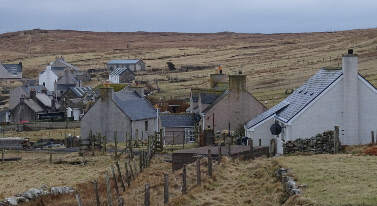Councillors demand special meeting over controversial policy of counting croft houses towards care costs
19 February 2020
Rarely used measures are being invoked by a group of councillors to force the comhairle to debate its highly controversial policy of counting the family croft towards care home charges.
Traditionally, the croft and associated home have been the same family for generations, handed down through the years.
But untested and ill-
Currently, if the official crofter is in residential care, then relatives face selling the croft to pay for the care costs.
The sites upon which older croft houses sit are not owned by the crofter but belong to the estate landlord as part of the rented croft land.
Critics maintain a crofter has a statutory heritable right of tenancy and therefore crofts and croft property should be exempt.
The local authority insists it is following legal advice in its interpretation and application of the care cost regulations.
Now the SNP group of councillors, along with councillor John Norman Macleod of the West Side and Ness ward, seek to force the council to set aside time to debate the issue.
South Uist and Barra councillor Calum MacMillan has sent a request signed by the eight councillors to chief executive Malcolm Burr.
Council rules declare a special meeting can be called any time if at least a quarter of elected members demand it.
Such a forum should normally held within 14 days after the the chief executive receives a valid request.
Mr MacMillan said: “The comhairle is being called to establish if security of croft tenure as set out in the crofting legislation has primacy over the pressing need to recover costs for residential care or if the current comhairle practice of forcing the sale of tenancies and properties in landlord ownership has primacy over statutory legislation of the Crofting Acts of Parliament.”
He added: “There are crofts in every comhairle ward and the core issue that councillors must consider is whether they are in support of crofting, complete with the statutory provisions, or if they see croft houses and tenancies as an opportunity to realise cash to cover care costs.”
The meeting would consider how many families have been affected and the amount of money gathered by the comhairle.
Councillors also want to debate the number of cases currently operational concerning the comhairle recovering monies from assignation of tenancies, selling off permanent improvements belonging to third parties, and, the cases where the comhairle seeks to be appointed executor of legacies in cases of intestate estate of deceased crofters with a view to being beneficiary, and, the number of cases where the comhairle is the care guardian and financial guardian
